Blog
iDove Intercontinental Youth Forum 2024
A youth reflection piece by Derrick Emmanuel Mugisha, member of Extremely Together Uganda and iDover
November 2024 will be remembered not just for my maiden trip to the Gold Coast (Ghana), but I was delighted to join other youth peacebuilders at the 7th iDove (Interfaith Dialogue on Violent Extremism) Intercontinental Youth Forum that took place at the Kofi Annan International Peacekeeping Training Center (KAIPTC) with over twenty young peacebuilders from sixteen nations.
On landing in Accra, we were welcomed with silently warm temperatures than across other parts of the continent from where I come from, it doesn’t get that warm.
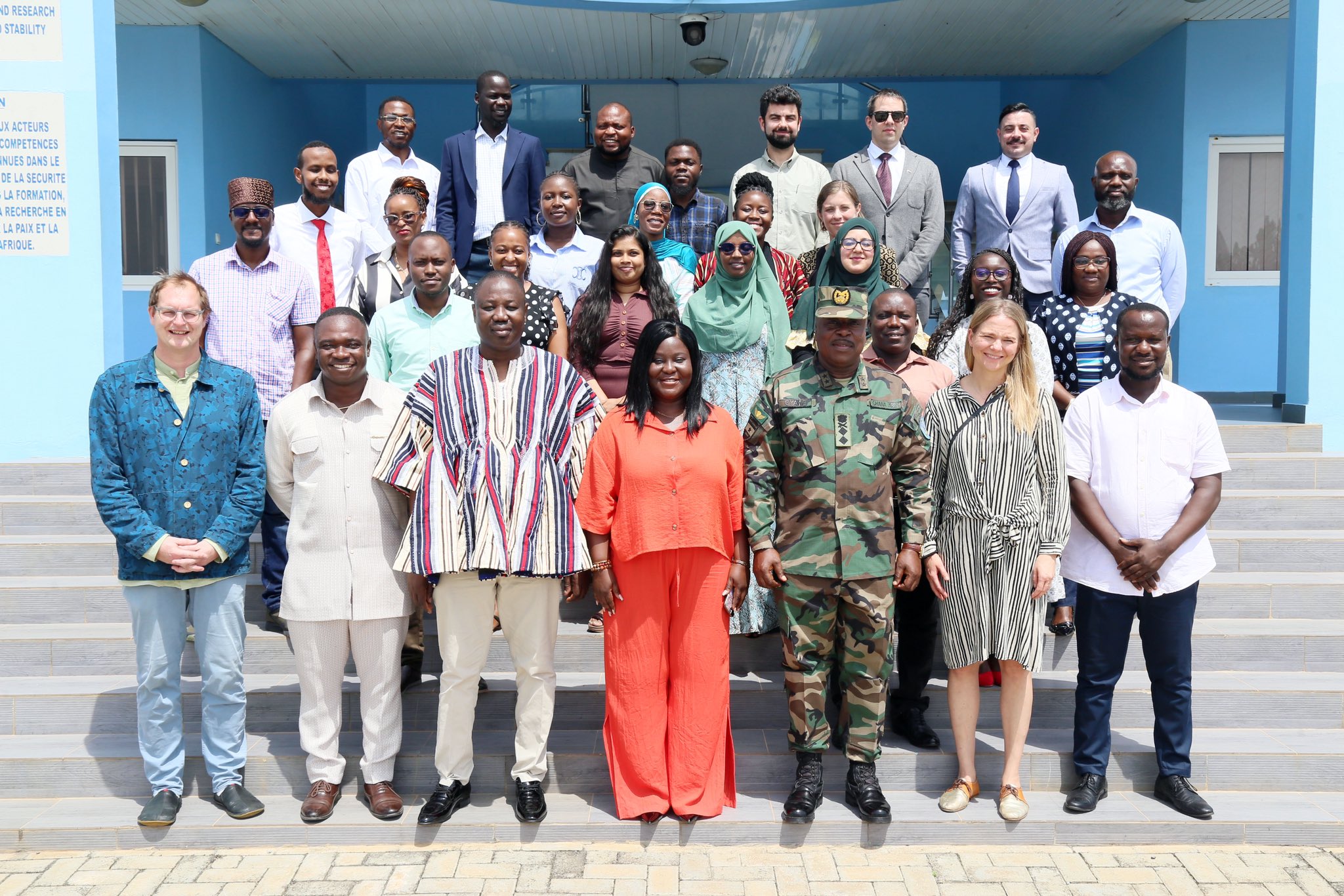
Derrick Mugisha with other iDove participants, trainers and partners share a group photo at The Kofi Annan International Peacekeeping Training Centre (KAIPTC). Photo: KAIPTC. 2024.
The iDove Interfaith Forum was an opportunity to connect with likeminded individuals who are making impactful difference in the lives of people in their communities. Some knew each other through virtual spaces and previous iDove engagements. It was my first physical encounter with the iDove group, having attended the last iDove Forum online during COVID-19, I kept praying for an opportunity to come by so I could learn more in depth about preventing and countering violet extremism. While in Accra, the Forum kickstarted with helping shape the governance framework of iDove to help the network get organized and put the pieces together. As the saying goes, ‘to fail to plan is to plan to fail.’ We put all our efforts to making sure that the structure was well planned to meet the needs of our network.
The icebreakers that were in between the sessions kept us motivated throughout the sessions. One of the icebreakers was the “concentration is the game, keep the rhythm if you can,” introduced by Dorna Khan from Kenya. Such icebreakers kept the team together and focused.
The main highlight of the Forum was the opportunity for young peacebuilders to learn vital skills in the area of peace mediation and interfaith collaboration. I have never participated in a mediaion process, so this was my first time to learn and experience what it is and how it is done. The learning became more interesting when we were put into groups to work on different case studies on ongoing conflicts around the world, using the Actors, Content, Context, Process (ACCP) analysis tool to analyze the role of religion in contemporary conflicts. My team worked on the Sudan conflict, which became really complicated as we worked towards our goal and understanding the conflict dynamics.
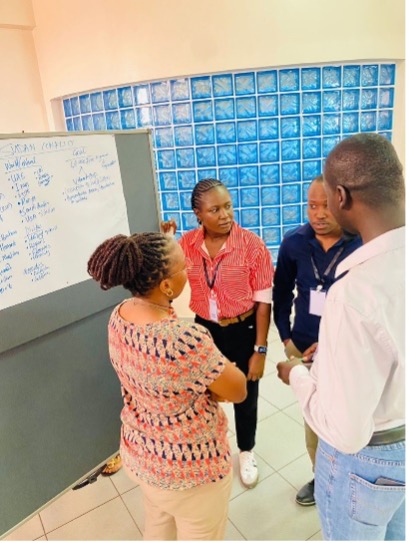
Derrick Mugisha with his group utilizing the ACCP Tool to understand the role of religion in the Sudan conflict. 2024.
We also learned about the purpose of inclusive approaches to mediation processes and why it is necessary. I now feel like a mediation expert, and I hope the knowledge we learned throughout the mediation process can help us to prevent and end all conflicts for a peaceful world. Another session about scriptural reasoning also opened my eyes in the view that we can have interfaith meetings and talk about sacred scriptures together and explore ways in which we can learn and respond to contemporary issues, many of which can start from our communities.
During the role plays, participants faced challenges that ranged from household-level issues to complex international mediation scenarios. As a mediator, I realized the importance of being prepared for any situation that might arise. One key lesson I learned was not to impose solutions but to allow the conflicting parties to find their own answers. My role was to facilitate communication and dialogue, helping the counterparts to raise their concerns and explore potential solutions.
The entire process was designed to shape us into the best mediators this generation has ever seen. I want to thank the African Union’s Citizens and Diaspora Directorate (AU-CIDO), the Deutsche Gesellschaft für Internationale Zusammenarbeit (GIZ), the Peacemakers Network, and the KAIPTC staff for their hospitality, warm welcome, and knowledge. Personally, I am eager to carry the lessons and insights I gained back to the Pearl of Africa, Uganda, and share them with my community.
We also took a tour of Kwame Nkrumah Mausoleum and park where we learned about the great history of Osagyefo Dr. Kwame, who was Ghana’s first President. His strong belief in Pan Africanism and his leadership journey is worth the pleasure to have the visit.
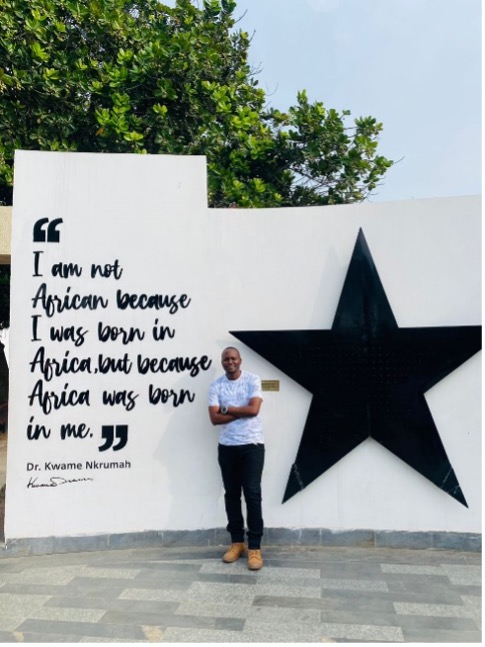
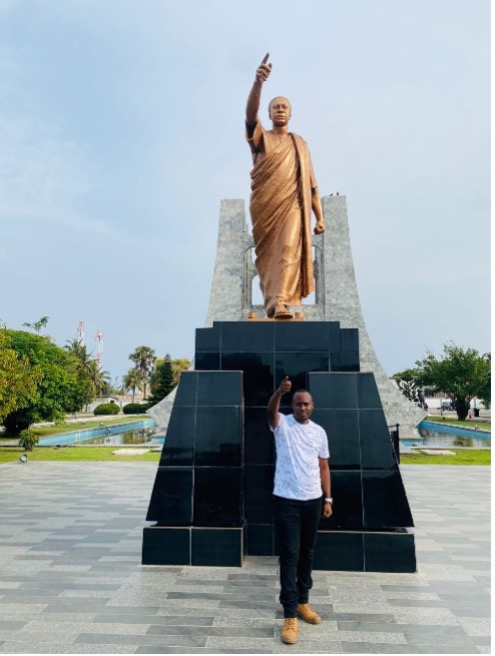
Derrick Mugisha poses with Kwame Nkrumah Statue at Kwame Nkrumah Mausoleum and Park during the excursion. 2024.
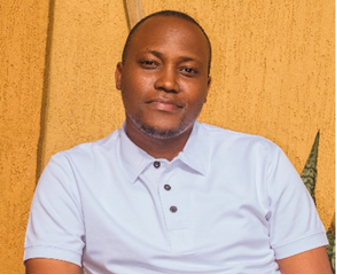
About Derrick Emmanuel Mugisha
Derrick Emmanuel Mugisha is a Ugandan youth advocate for peace and sustainability, a member of the Extremely Together Uganda, a network of young leaders to foster peace and social cohesion through youth-led initiatives where he has empowered a number of secondary schools with the knowledge on preventing and countering violent extremism. He is a scholar of International Relations and Diplomatic Studies, Founder of Peace Reality, and former Communications Director at Amani Leo (#IchoosePeaceToday). Over the years, Derrick has championed climate action to address climate-induced conflicts at the Biodiversity Hub International. Derrick is also a former Regional Director for Africa at Earthday.org.
About the iDove Programme
The iDove programme and capacity building support program on Interfaith Dialogue and prevention of Violent Extremism provides youth-driven, innovative, and context-specific responses to preventing violence. The program activities are implemented by selected seven local organizations associated with iDovers, who are youth peacebuilders from Europe, Asia, and Africa. The program contributes particularly to the advancements of the small-scale projects while supporting iDovers engagement more broadly. The Network for Religious and Traditional Peacemakers supports the actions implemented by the iDover-associated organisations to enhance their organisational capacity building to ensure timely and effective youth-led responses to preventing violence.
Follow the iDove programme on social media
